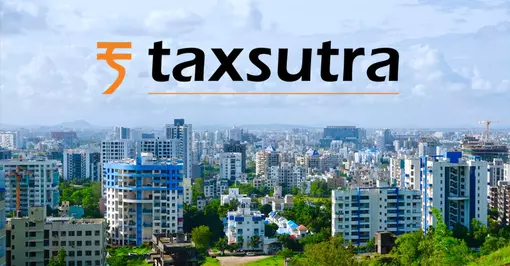Indian Income Tax Appellate Tribunal holds outsourcing charges paid by iRunway to not be FTS
Indian Tax Tribunal holds outsourcing charges to not be FTS, distinguishing between ‘make available’ & ‘make use’

The Indian Income Tax Appellate Tribunal (ITAT) allowed an appeal by iRunway India Private Limited (“iRunway”) and allows outsourcing charges paid by the iRunway to its wholly owned subsidiary in the United States and sales commission paid to a non-resident.
iRunway, which is engaged in providing technology, consulting and litigation support services in IP and patent domain, was subject to disallowance for an amount paid to its 100% subsidiary in the United States and sales commission paid to a non-resident on the basis that the said expenses were in the nature of FTS, and thus liable to withholding of tax. The ITAT observes that the US subsidiary provided services in connection with patent registration, patent litigation and procuring evidence for patent litigation and similar services for iRunway customers based in the United States.
In the light of article 12(4)(b) of the India-US DTAA, the ITAT rejects the contention of the Indian Income Tax Department (i.e. Revenue) that the US subsidiary had made available knowledge to iRunway based on the rebuttal memo prepared by the US subsidiary that was reviewed by an employee of iRunway to “make use” of the same in the final deliverable given to the client. It opines that Revenue made an incorrect interpretation of “make use” by deeming it to be equivalent to “make available” of technical knowledge and the ITAT explains that the memo was only made a part of the final deliverable and did not enable iRunway’s employee to arrive at the analysis, independently in the future, due to the absence of the requisite knowledge.
The ITAT states that Revenue failed to appreciate that owing to the legal restrictions in the United States (i.e. protective order and undertaking thereon), the subsidiary or its employees did not have an opportunity or any occasion to “make available” any technical knowledge to iRunway or its employees while rendering services, and holds that in the absence of any technical knowledge or skill made available to iRunway, the payment could not be construed as FIS under article 12 of the India-US DTAA requiring tax deduction of source under section 195 and consequently, disallowance under section 40(a)(i) cannot be sustained.
As regards the sales commission, the ITAT observes that iRunway obtained certain sales consulting services from Mr Neeraj Gupta and a commission based on a fixed rate of sales was agreed to be paid. It states that the findings on the applicability of article 12(4)(b) with respect to outsourcing charges would equally apply to sales commission, and opines that “Merely because he was technically qualified, sales commission paid for enabling sale cannot become payment for rendering technical services”, in terms of article 12. The ITAT also states that even in terms of article 15, the sum paid would qualify as income from performance of professional services and therefore shall be taxed in the country of which he is resident in the absence of a PE in India, and points out that Mr Neeraj Gupta did not satisfy the criteria as provided in article 15 of the India-US Tax Treaty since neither did he have a fixed base regularly available to him in India, nor did he stay even a single day in India, and accordingly the ITAT holds that no disallowance could be made when the sales commission was not taxable in India.